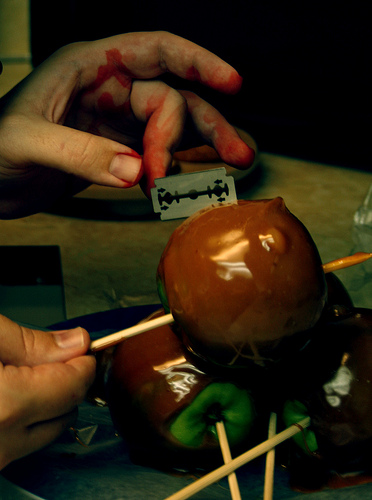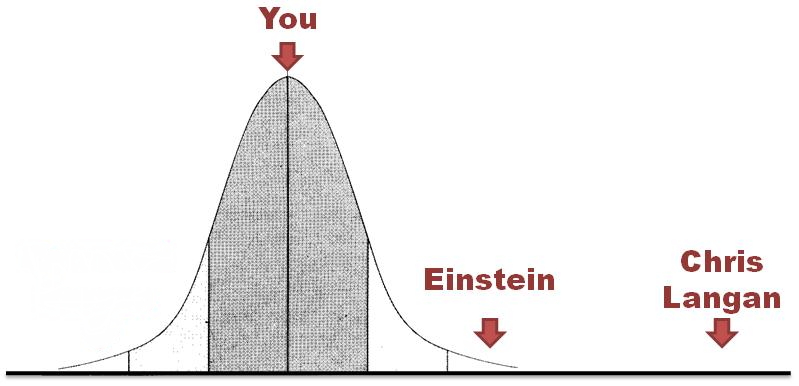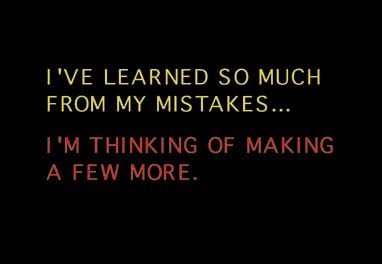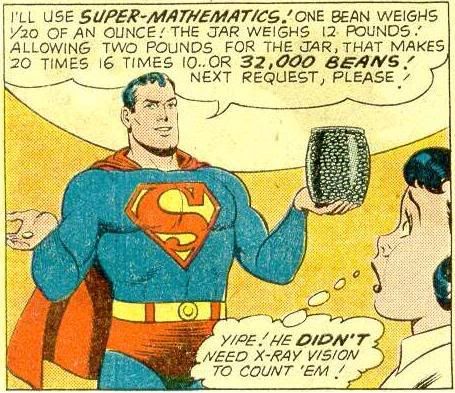The Science Of Halloween: 6 Spooky Insights Confirmed By Research
bsp; Happy Halloween! Here's a quick round-up of Halloween themed posts: 1) Don't worry about razor blades in your kids’ halloween candy: "...poisoned treats are best seen as legend. “I have been unable to find a substantiated report of a child being killed or seriously injured by a contaminated treat picked up in the course of trick-or-treating,” he writes. A survey of news reports finds no more than two reported incidents of this type in any given year since 1982, and…
2 minutes
The Smartest Man In The World Is This Guy
ristopher Langan is the smartest man in the world. As Malcolm Gladwell noted when he profiled Langan for the bestseller, Outliers: "He got a perfect score on his SAT, even though he fell asleep at one point during the test.": The television news show 20/ 20 once hired a neuropsychologist to give Langan an IQ test, and Langan’s score was literally off the charts— too high to be accurately measured. Another time, Langan took an IQ test specially designed for people too…
2 minutes
Why do life-threatening situations make some people more calm?
e heart rates of the best bomb disposal experts actually drop when they're in the danger zone. Why? Confidence. Via The Wisdom of Psychopaths: What Saints, Spies, and Serial Killers Can Teach Us About Success: Back in the 1980s, Harvard researcher Stanley Rachman found something similar with bomb-disposal operatives. What, Rachman wanted to know, separated the men from the boys in this high-risk, high-wire profession? All bomb-disposal operatives are good. Otherwise they’d be dead. But what did the stars have that the…
2 minutes
Are worriers better friends, lovers and employees?
ople prone to feeling ashamed before they have done anything wrong make better friends, lovers and employees. Via The Daily Telegraph: Writing in the Current Directions in Psychological Science journal, experts explained the difference between guilt – the feeling of remorse when you have done something wrong – and "guilt proneness", where you anticipate feeling ashamed before you have actually done any wrong. People who are predisposed to such thoughts make better friends, lovers and employees because they are so aware of…
1 min read
3 Reasons Your Relationship With Food Is Totally Crazy
bsp; 1) You ignore the importance of context You ate more because you were hungry? Maybe, but you're probably not giving nearly enough credit to how context affects you. I've posted many times about how context is far more influential than you think. From Paul Bloom's How Pleasure Works: Protein bars taste worse if they are described as "soy protein" Orange juice tastes better if it is bright orange. Yogurt and ice cream are more flavorful if described as "full fat"…
6 minutes
Why do we play?
y do we play? We play in order to learn: Via Play: How it Shapes the Brain, Opens the Imagination, and Invigorates the Soul: Play creates new neural connections and tests them. It creates an arena for social interaction and learning. It creates a low-risk format for finding and developing innate skills and talents. How does this work? When something is fun, it commands our full attention and provides an emotional reward, two things that are key to strengthening memory:…
4 minutes
What are the secrets of improving learning and memory?
ve already posted a research round-up on becoming an expert at anything. That was focused on the big picture of how to master something over a period of years. This time let's get less macro and focus more on the nitty-gritty of what you need to do when you sit down, roll up your sleeves and try to learn something new. Yeah, It's Gonna Take Effort No, I'm not going to lecture you like Grandpa about the virtues of…
3 minutes
What’s the best way to learn from a book?
n't keep reading it over and over. Read it and write a one page summary. Via Daniel Coyle's excellent book The Little Book of Talent: 52 Tips for Improving Your Skills: Research shows that people who (wrote a summary) remember 50 percent more material over the long term than people who follow (repeatedly read). This is because of one of deep practice’s most fundamental rules: Learning is reaching. Passively reading a book— a relatively effortless process, letting the words wash…
1 min read







